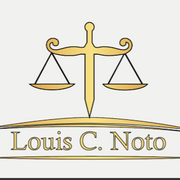
While not all individuals need to create trusts or establish powers of attorney, everyone should have a will. A last will and testament is arguably the most important estate planning document, meaning it should be created thoughtfully— not drafted quickly using the first template you find. To ensure your will serves its intended purpose, follow these tips when writing it.
How to Write a Comprehensive Will
1. Take an Inventory of Your Assets
Before you can distribute property to various beneficiaries, you must take stock of everything you own. If you're unsure where to start, review last year’s tax return; it should contain a list of some, if not all, of your assets. And if you own any property jointly, include it on this list, but make sure to review your rights as far as distributing it before finalizing your estate planning arrangements.
2. Consider All Eventualities
 A comprehensive will should protect your loved ones in all eventualities. As such, you’ll have to consider all kinds of scenarios when drafting this document. For example, if you have children, what if something were to happen to both you and their other parent? Who would step in and assume guardianship? And what if the executor you name is unwilling or unable to take on the role? Who will serve as the backup executor?
A comprehensive will should protect your loved ones in all eventualities. As such, you’ll have to consider all kinds of scenarios when drafting this document. For example, if you have children, what if something were to happen to both you and their other parent? Who would step in and assume guardianship? And what if the executor you name is unwilling or unable to take on the role? Who will serve as the backup executor?
3. Be Precise & Unambiguous
If you leave behind a legally binding will, it's reasonable to assume the document will mitigate disputes among beneficiaries (or those who feel as though they should receive an inheritance). However, if the terms are ambiguous or the figures imprecise, conflicts are inevitable. Make sure to quantify everything in your will using dollar amounts or percentages, and review all its terms with an attorney to ensure they don't leave any room for interpretation.
For help drafting your estate planning documents, turn to Louis C. Noto. Practicing out of Rochester, NY, this seasoned attorney has more than 48 years of experience in law. He is proud to utilize his general practice knowledge to assist with virtually all your legal needs for a reasonable rate. To browse his areas of expertise, from divorce to personal injury law, visit his website. To make an appointment to discuss your estate planning needs, call (585) 232-1815.
About the Business
Have a question? Ask the experts!
Send your question

